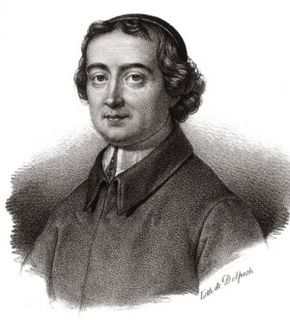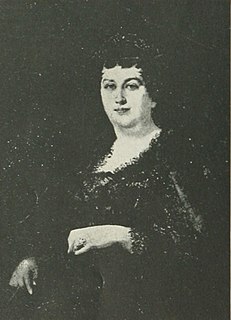A Quote by Gustave Flaubert
[T]he truth is that fullness of soul can sometimes overflow in utter vapidity of language, for none of us can ever express the exact measure of his needs or his thoughts or his sorrows; and human speech is like a cracked kettle on which we tap crude rhythms for bears to dance to, while we long to make music that will melt the stars.
Related Quotes
Nothing feebler than a man does the earth raise up, of all the things which breathe and move on the earth, for he believes that he will never suffer evil in the future, as long as the gods give him success and he flourishes in his strength; but when the blessed gods bring sorrows too to pass, even these he bears, against his will, with steadfast spirit, for the thoughts of earthly men are like the day which the father of gods and men brings upon them.
God Himself - His thoughts, His will, His love, His judgments are men's home. To think His thoughts, to choose His will, to judge His judgments, and thus to know that He is in us, with us, is to be at home. And to pass through the valley of the shadow of death is the way home, but only thus, that as all changes have hitherto led us nearer to this home, the knowledge of God, so this greatest of all outward changes - for it is but an outward change - will surely usher us into a region where there will be fresh possibilities of drawing nigh in heart, soul, and mind to the Father of us all.
He who has learnt to control his tongue has attained self-control in a great measure. When such a person speaks he will be heard with respect and attention. His words will be remembered, for they will be good and true. When one who is established in truth prays with a pure heart, then things he really needs come to him when they are really needed: he does not have to run after them. The man firmly established in truth gets the fruit of his actions without apparently doing anything. God, the source of all truth, supplies his needs and looks after his welfare.
No one can sense his own weakness is at least a small temptation is not allowed to afflict either his body or his soul. Then, comparing his weakness to the help of God, a man comes to know its magnitude. But whoever does not know that he needs God's help, let him make many prayers. Insofar as he multiplies them, in that measure will he be humbled.
The world of men has forgotten the joys of silence, the peace of solitude, which is necessary, to some extent, for the fullness of human living. Man cannot be happy for long unless he is in contact with the springs of spiritual life which are hidden in the depths of his own soul. If man is exiled constantly from his own home, locked out of his spiritual solitude, he ceases to be a true person.
When Christ was about to leave the world, He made His will. His soul He committed to His father; His body He bequeathed to Joseph to be decently interred; His clothes fell to the soldiers; His mother He left to the care of John; but what should He leave to His poor disciples that had left all for Him? Silver and gold He had none; but He left them that which was infinitely better, His peace.
Give us, O give us the man who sings at his work! Be his occupation what it may, he is equal to any of those who follow the same pursuit in silent sullenness. He will do more in the same time . . . he will do it better . . . he will persevere longer. One is scarcely sensible to fatigue while he marches to music. The very stars are said to make harmony as they revolve in their spheres.
What a wee little part of a person's life are his acts and his words! His real life is led in his head, and is known to none but himself. All day long, the mill of his brain is grinding, and his thoughts, not those of other things, are his history. These are his life, and they are not written. Everyday would make a whole book of 80,000 words -- 365 books a year. Biographies are but the clothes and buttons of the man -- the biography of the man himself cannot be written.



































